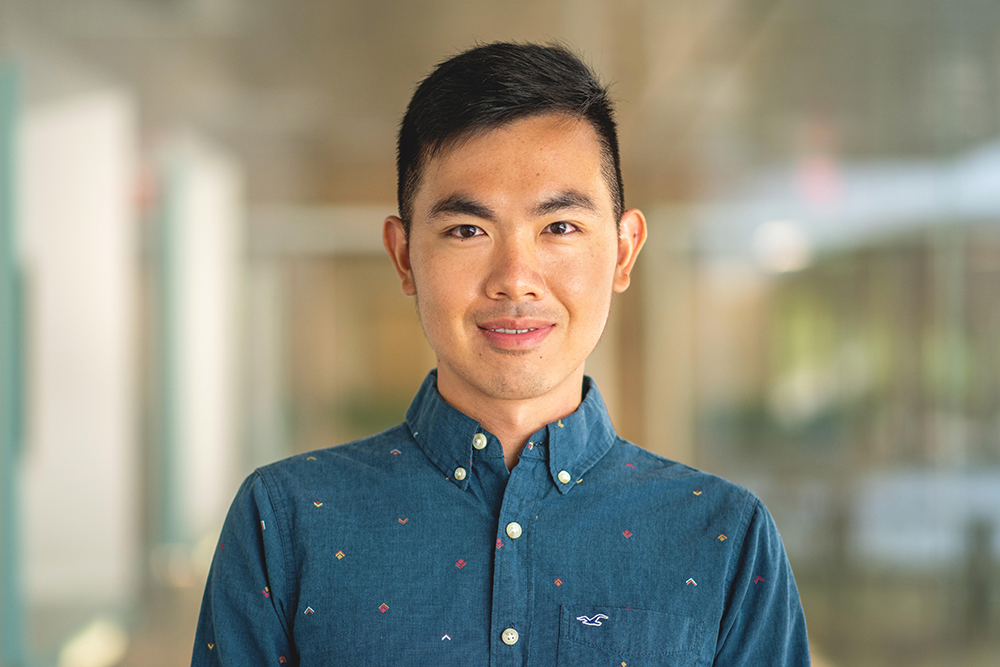Che-Hsuan Cheng’s hybrid transistor earns Best Poster Award

PhD student Che-Hsuan Cheng has won a Best Poster Award from the Materials Research Society Spring Meeting for his presentation on a new hybrid transistor that is ultrasensitive to ultraviolet (UV) light. This hybrid transistor could help advance the design of next generation microchip devices, as well as ultrasensitive UV photodetectors.
“Every year, there’s a new iPhone or computer chip trying to increase speed,” Cheng says. “It is essential to reduce the size of the transistor so each chip can contain more transistors, thus increasing the speed. With our method, it’s a lot easier to scale down the size of the transistor.”
With our method, it’s a lot easier to scale down the size of the transistor.
Che-Hsuan Cheng
Conventional semiconductors are typically made of silicon or germanium, but Cheng’s team employed a thin layer of tungsten diselenide, which belongs to the family of transition metal dichalcogenides, along with organic azobenzene based molecules. They then used UV light to switch the dimension of the molecule, which creates strain on the semiconductor and significantly enhances the mobility of the transistor.
“There are tons of groups that use different methods to create strain for semiconductor transistors,” Cheng says. “We had no idea our method would work. We just thought it would be fun to try.”
Previous methods to create strain relied heavily on mechanical and nanofabrication design, which are more complicated and require far greater precision. Light-powered and chemically fueled artificial molecules, however, are easier to manipulate and achieve equal or greater results.
“The advantage of this kind of material is that it’s two dimensional, so it’s easier to make a smaller and smaller transistor,” Cheng says.
Cheng’s current research focuses mainly on the electrical and optical properties of the materials, but he is planning to explore more in the future. He used the Lurie Nanofabrication Facility on campus to conduct some of his research. He is advised by Prof. Parag Deotare.
Before joining U-M in 2016, Cheng earned a MS in Electrical and Electronics Engineering and a BS in Materials Science and Engineering from the National Taiwan University.
“There are so many different resources and research groups at Michigan, which is very exciting to me,” Cheng says. “And Ann Arbor is a really nice town.”
 MENU
MENU 
